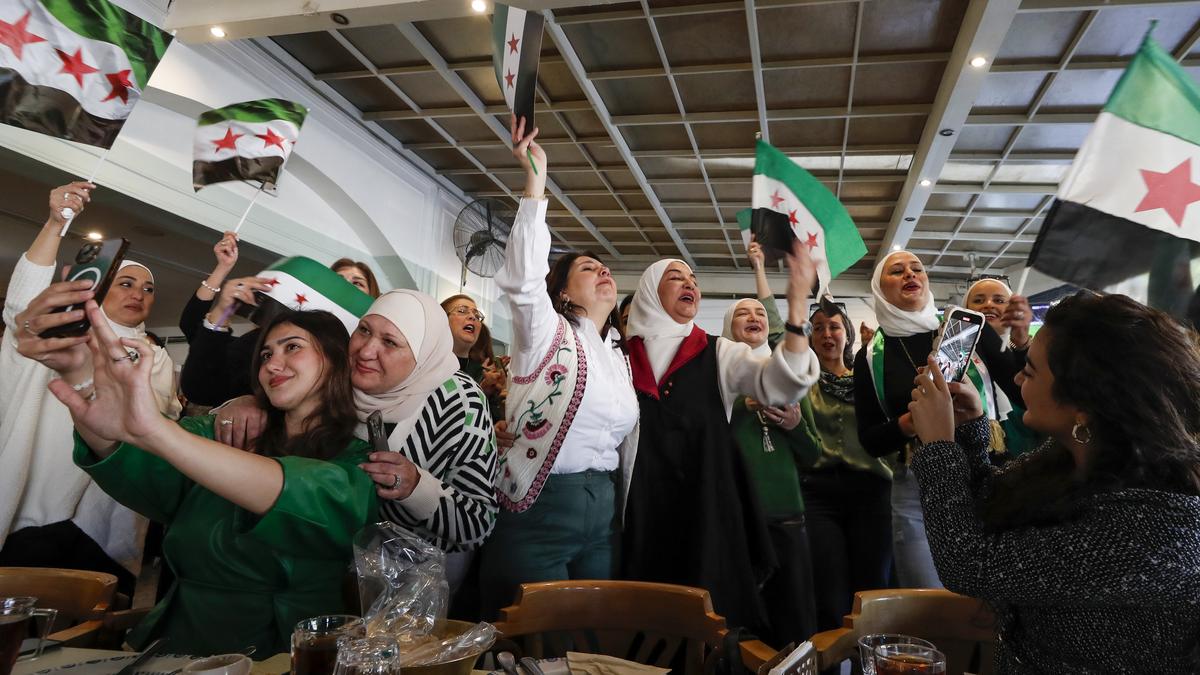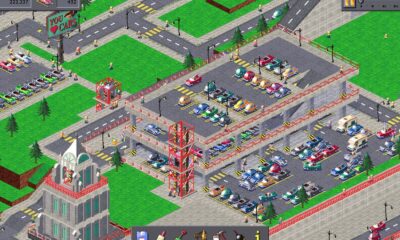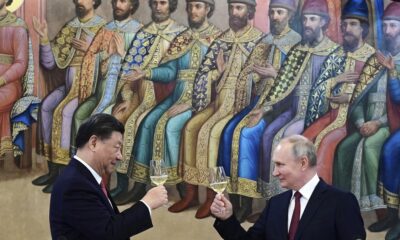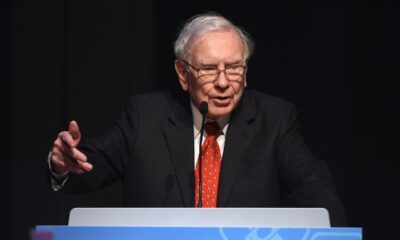Syria’s new leaders have increased their engagement with countries that previously considered ousted President Bashar al-Assad a pariah, as demonstrated by the French flag being raised at the embassy for the first time in over a decade on Tuesday (December 17, 2024).
Mr. Assad fled Syria just over a week ago, with his forces abandoning tanks and other equipment in the face of a rapid offensive led by the Islamist group Hayat Tahrir al-Sham (HTS).
The collapse of Mr. Assad’s rule on December 8 took the world by surprise and sparked celebrations in Syria and beyond. His crackdown on democracy protests in 2011 had led to one of the deadliest wars of the century.
Rooted in Syria’s branch of al-Qaeda, HTS is considered a terrorist organization by several Western governments. However, it has attempted to moderate its stance and has pledged to safeguard the country’s religious minorities.
The EU has announced that it will reopen its mission in Syria after “constructive” discussions with the new leadership, a move described by the bloc’s foreign policy chief Kaja Kallas as a “very important step”.
Countries like Turkiye and Qatar, which supported the anti-Assad opposition, have reopened their embassies in Damascus. Additionally, officials from the U.S. and the UK have initiated communications with Syria’s new rulers.
France, a key supporter of the uprising, sent a delegation to Damascus on Tuesday, with special envoy Jean-Francois Guillaume stating that his country was prepared to stand with Syrians during the transitional period.
A journalist from AFP witnessed the French flag being raised in the embassy’s entrance hall for the first time since its closure in 2012.
After meeting with Syria’s new leaders, the United Nations humanitarian chief Tom Fletcher expressed his encouragement on Tuesday, noting that there was a “basis for ambitious scaling-up of vital humanitarian support”.
German diplomats were also present in Damascus on Tuesday, while Italian Prime Minister Georgia Meloni expressed readiness to engage with the new leadership.
Syria had faced international sanctions due to Mr. Assad’s brutal suppression of protests, resulting in a war that claimed over 500,000 lives and displaced half of the population.
Mr. Assad left behind a nation scarred by decades of atrocities, economic mismanagement, and a dire need for aid for 70 percent of the population.
Abu Mohammed al-Jolani, leader of HTS, emphasized the importance of lifting sanctions to facilitate the return of Syrian refugees during a meeting with British diplomats. He also proposed disbanding rebel factions and integrating fighters into the defense ministry.
“Syria must remain united,” al-Jolani stated, as reported on the group’s Telegram channel. “There must be a social contract between the state and all religions to ensure social justice.”
The EU’s Kallas highlighted that the removal of sanctions and the delisting of HTS would be contingent on tangible actions rather than mere promises from the new leadership.
The United Nations anticipates that one million people will return to Syria in the first half of 2025, following the displacement of six million individuals during the war.
‘Colour of peace’
In Damascus’s old souk, many shops had resumed operations over a week after Assad’s ouster.
Some shop owners were painting their storefronts white, replacing the colors of the old Syrian flag that had become ubiquitous during Assad’s rule.
“We have been working tirelessly for a week to paint everything white,” said 61-year-old artisan Omar Bashur. “White symbolizes peace,” he added.
Vendor Abu Imad was selling vegetables from his car in a central Damascus square. “Everything changed at once: the regime fell, prices decreased, life improved. We hope it’s not temporary,” he remarked.
With Assad no longer in power, the Syrian pound began to strengthen against the dollar, according to money changers and traders, as foreign currencies reentered the local market.
Iran, a staunch supporter of Assad during the civil war, announced that its embassy in Syria, which had been abandoned and vandalized following Assad’s downfall, would reopen once the necessary conditions were met.
Russia, another key ally of Assad, had also backed his regime.
In a statement on Telegram on Monday, Mr. Assad, breaking his silence, claimed that he only departed to Russia after Damascus fell and denounced the new leadership as “terrorists”.
“My departure from Syria was not planned and did not occur during the final hours of the battles,” he stated.
Former officials informed AFP that Mr. Assad had already left the country before the rebels seized Damascus.
‘My tears were dry’
Across the nation, Syrians who had been deprived of news about missing loved ones for years searched desperately for any information that could bring them closure.
In a war-torn Palestinian refugee camp near Damascus, Radwan Adwan was reconstructing his father’s grave with stones, finally able to return to the cemetery.
“Without the fall of the regime, I would have never been able to see my father’s grave again,” said Adwan, aged 45.
The Yarmuk camp had been bombed and besieged by Assad’s forces, emptied of most of its inhabitants, and reduced to rubble before being recaptured in 2018. Access to the cemetery had been officially prohibited.
“When we arrived, there was no sign of the grave,” Adwan recalled.
Sitting in front of her husband’s gravesite on a small metal chair, Zeina, Adwan’s mother, expressed relief. “I can finally mourn for him. Before, I couldn’t shed any tears,” she said.
Published – December 17, 2024 09:28 pm IST








































